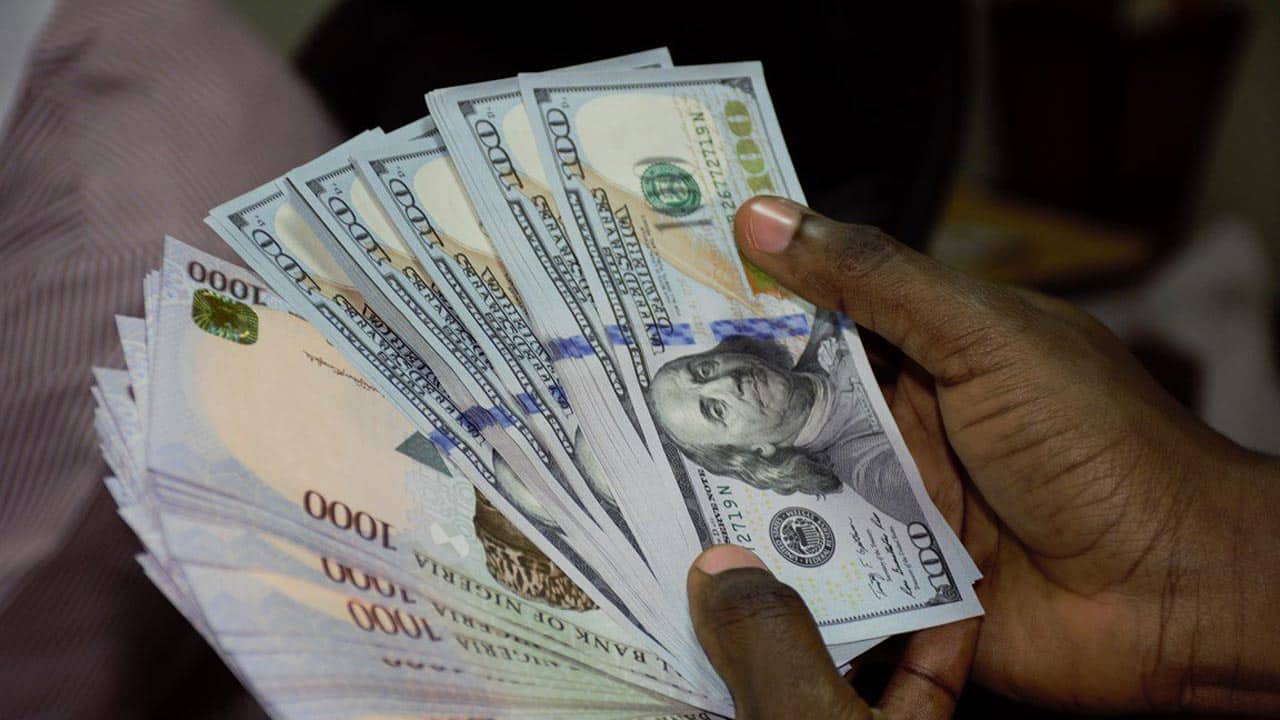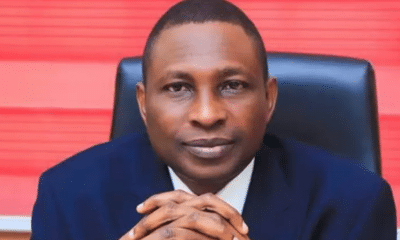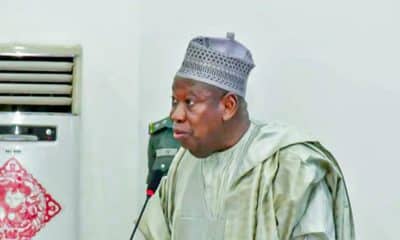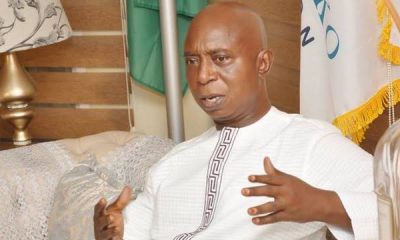Nigeria News
‘Why Naira Remains Weak Against Dollar’

The naira has continued to depreciate against the US dollar since President Bola Tinubu assumed office in May 2023.
President Tinubu since his assumption of office removed Nigeria’s foreign currency controls in June in a bid to get transactions flowing through the official market again to help unify the naira’s exchange rates. But that has only fuelled the currency’s weakness and added to inflationary pressures.
The dollar is currently exchanging at around N1000 to $1, compared to around N430 to $1 when Tinubu became president.
Why Is The Naira Falling?
The central bank has a backlog of accumulated forex demand on the official market, which effectively forces individuals and businesses to head to the black market if they need dollars.
But dollar flows to Nigeria have been falling in the last few years due to declining investment and lower exports of crude oil, which account for more than 90% of the country’s export income.
Investors cheered when Tinubu lifted the currency controls, hoping a unified exchange rate would make it easier to access foreign currency, but that is yet to happen.
How Huge Is The Nigeria Forex Reserve?
The country’s forex reserves fell to $33.5 billion in September from $37 billion in January, central bank data shows.
In August, the central bank published audited accounts for the first time since 2018 and revealed that its reserves included a $19 billion commitment in derivatives – slashing the liquid amount of the reserves.
JPMorgan calculated that the country’s net FX reserves stood at $3.7 billion as of the end of 2022, “significantly lower” than prior estimates.
Nigeria’s crude excess account only has $473,755, the National Economic Council said in August, down from a peak of $20 billion in 2008, after successive governments withdrew dollars to support the naira and budget spending.
Naija News understands that several factors have contributed to the weakening of the naira against the dollar under Tinubu’s administration.
Here are some factors identified to have strengthened the dollar against Naira.
– Decline in oil revenue: Nigeria heavily relies on oil exports for foreign exchange earnings. However, oil revenue has dropped significantly due to falling global crude prices. This has reduced the supply of dollars.
– High import dependence: Nigeria continues to depend on imported goods paid for in dollars. This high import bill puts pressure on the naira.
– Low foreign investor confidence: Foreign investors have been wary of investing in Nigeria due to concerns about policy instability and transparency. This has led to dollar outflows.
– High inflation: Nigeria’s high inflation rate of over 15% has increased demand for dollars as Nigerians seek to hedge against rising prices.
In response, the Central Bank of Nigeria under Governor, Yemi Cardoso has introduced several policies to support the naira and boost dollar liquidity.
Naija News recalls that CBN lifted the foreign exchange restrictions it placed on the importation of 43 items, including rice, cement, and some building materials, among others.
The items include Rice, cement, Margarine, Palm kernel, palm oil products and vegetable oils, meat and processed meat products, and vegetables and processed vegetable products.
Others are poultry and processed poultry products, tinned fish in sauce (Geisha)/sardines, cold rolled steel sheets, galvanized steel sheets, roofing sheets, wheelbarrows, head pans, metal boxes and containers, Enamelware, Steel drums, Steel pipes, Wire rods (deformed and not deformed), Iron rods and reinforcing bars.
Also included on the list were: Wire mesh, Steel nails, Security and razor fencing and poles, Wood particle boards and panels, Wood fiberboards and panels, Plywood boards and panels, Wooden doors, Toothpicks, Glass and glassware, Kitchen utensils, Tableware, Tiles-vitrified and ceramic.
Textiles, Woven fabrics, Clothes, Plastic and rubber products, polypropylene granules, cellophane wrappers and bags, Soap and cosmetics, Tomatoes/tomato pastes, Eurobond/foreign currency bond/ share purchases, Piston crowns, Ball bearings, High voltage cables, Transformers/switch gears and Gas cylinders.
The CBN explained that it is putting plans in place to address the existing backlog of foreign exchange transactions.
Other policies put in place by the Federal Government and the apex bank include:
– Adjustment of the official exchange rate: The CBN has devalued the official rate three times since 2023. The current rate is around N430 to $1. However, the naira remains weaker on the black market.
– Tightening of capital controls: The CBN has restricted the ability of individuals and companies to access foreign exchange for certain types of imports. However, this has forced some businesses to the black market for their dollar needs.
– Unification of exchange rates: The CBN is working towards unifying the multiple exchange rates to improve transparency in forex allocation. However, progress has been slow.
– Boosting of dollar supply: The CBN resumed dollar sales to BDCs after stopping weekly interventions. The apex bank has also inked currency swap deals with China and other countries to boost liquidity.
– Attracting dollar inflows: The CBN is encouraging foreign investors, exporters, and Nigerians in the diaspora to channel dollar inflows into the country through formal means.
However, these measures have not been enough to prevent the naira’s continued slide against the dollar. Stronger reforms and policies are still required to stabilize the exchange rate and ensure Nigeria’s external reserves are adequate to meet forex demands. The Tinubu administration faces an uphill task in restoring investor confidence in the economy and strengthening the naira.
Naija News correspondent in a chat with the Team Lead, Non-Financial Transactions of one of the First Bank branches in Ogun State, Gbemisola Komolafe, noted that the following things have seen the Naira crash against the dollar:
– High demand for dollar
– High net import
– huge forex backlogs
– High inflation
– Low forex reserves
When asked about the advice she would give to President Tinubu on policies to put in place to help strengthen the Naira, Gbemisola Komolafe listed them:
– Encourage local production.
– Grant subsidies, and tax relief to local producers to drop the cost of production.
– Build up Nigeria’s forex reserves
– Clear Forex backlog
– Make forex available through official channels, thereby minimizing dependence on the parallel market.
– Encourage exports.
– Opening up our borders to ease trade with neighboring nations.












